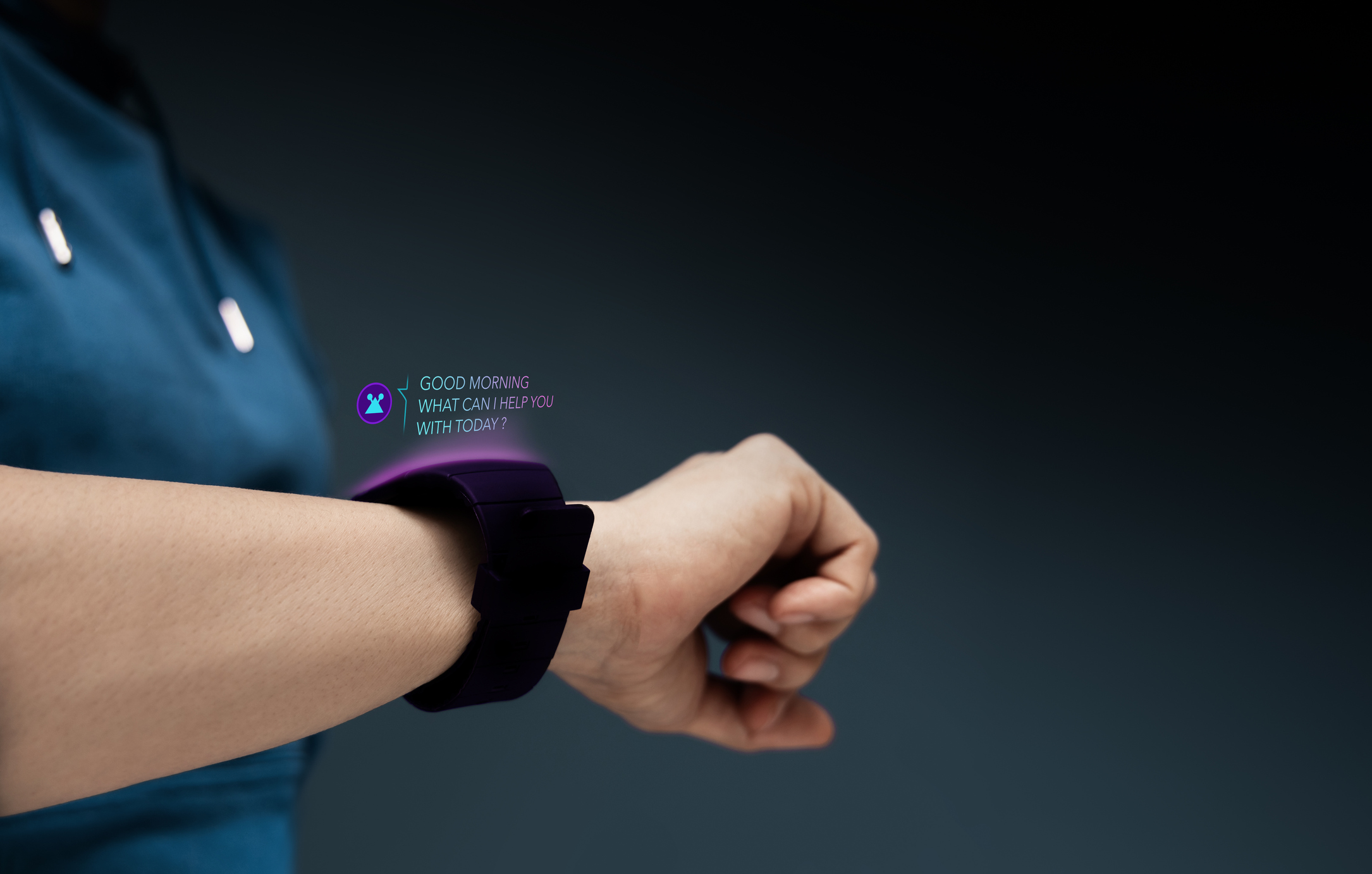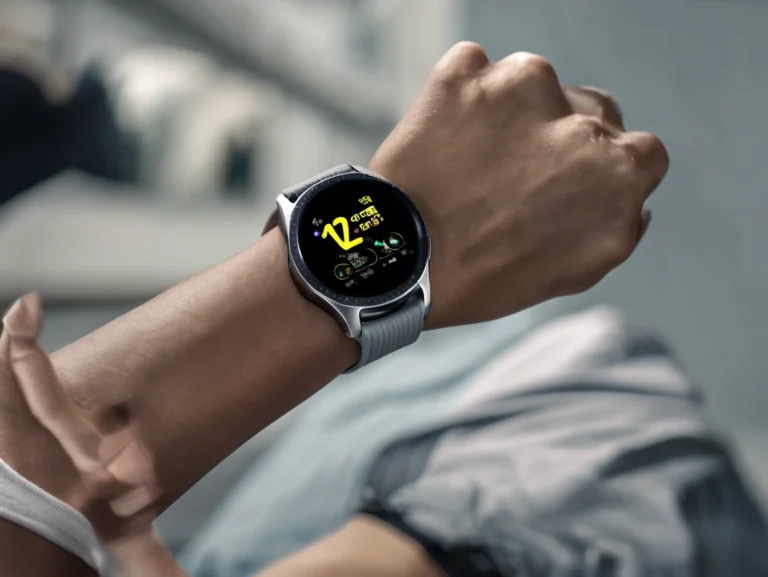
Samsung Galaxy Watch Review: Is It the Best for Health Monitoring?
Wearable technology has come a long way. Samsung is at the forefront of making smartwatches. They blend style and purpose effortlessly! The latest Samsung Galaxy Watch series has cutting-edge health monitoring features. It is designed to revolutionize how we track personal wellness. Exciting, right? But does it live up to the hype? Let’s dive in together! In this review, we’ll break down its features. We will look at its real-life performance. We will also see if it truly earns the title of the ultimate health-tracking smartwatch. Join us as we explore what this innovative device has to offer!
First Impressions: Design and Build Quality
The Samsung Galaxy Watch lineup has always been known for its stylish design, and the latest models continue that trend. The watch features a round AMOLED screen and customizable watch faces. A rotating bezel, available on select models, enhances its design. It looks premium and feels comfortable on the wrist.
The watch comes in multiple sizes. This accommodates different wrist sizes. It’s easy to personalize with a variety of band options. But beyond aesthetics, what truly stands out is what’s under the hood—especially when it comes to health tracking.
Health Monitoring Features: What Can It Do?
1. Heart Rate Monitoring & ECG
One of the standout features of the Galaxy Watch is its heart rate monitoring and ECG (Electrocardiogram) capability. This feature is particularly useful for detecting irregular heart rhythms, such as atrial fibrillation (AFib), which can be a precursor to serious cardiovascular issues.
📌 Case Study: Sarah, a 42-year-old fitness enthusiast, started using the Galaxy Watch to track her heart health. One day, she received an alert about an irregular heartbeat. Concerned, she visited her doctor, who confirmed she had AFib. Early detection allowed her to take preventive measures, significantly improving her health outlook.
The ECG function is FDA-approved and provides medical-grade readings, making it a valuable tool for anyone with heart concerns.
2. Blood Pressure Monitoring
Blood pressure tracking is a relatively new feature in smartwatches, and Samsung has integrated it into the Galaxy Watch. However, users need to calibrate it with a traditional cuff periodically for accuracy.
📌 Case Study: James, a 55-year-old with hypertension, struggled with keeping track of his blood pressure regularly. The Galaxy Watch helped him monitor his readings daily, giving him better insights into how his lifestyle choices were affecting his numbers. With this real-time data, he was able to adjust his diet and medication under his doctor’s supervision.
3. Blood Oxygen (SpO2) & Sleep Tracking
Monitoring oxygen levels in the blood has become an essential feature in wearables, especially post-pandemic. The Galaxy Watch provides continuous SpO2 tracking, which is helpful for people with respiratory conditions like asthma or sleep apnea.
In addition to SpO2, sleep tracking is another area where Samsung excels. The watch provides a detailed analysis of sleep stages, detecting deep, light, and REM sleep. Plus, the snoring detection feature pairs with your phone’s microphone to assess sleep quality more comprehensively.
4. Body Composition Analysis (BIA Sensor)
Samsung has introduced a Bioelectrical Impedance Analysis (BIA) sensor in the Galaxy Watch, allowing users to measure body fat percentage, skeletal muscle, water levels, and BMI.
📌 Case Study: Mark, a 30-year-old gym-goer, used the BIA feature to track his body composition progress instead of just relying on weight. Over six months, he noticed a significant reduction in body fat percentage, proving that his workout regime was yielding results even when the scale wasn’t showing big changes.
This feature is a game-changer for those who prefer a more data-driven approach to fitness and wellness.
5. Stress & Wellness Tracking
The built-in stress tracking feature provides real-time insights based on heart rate variability (HRV) data. If the watch detects elevated stress levels, it suggests guided breathing exercises to help calm you down.
For mindfulness enthusiasts, Samsung also integrates with apps like Calm for guided meditation and sleep stories, making the watch a holistic health companion.
Fitness Tracking: How Well Does It Perform?
For fitness enthusiasts, the Galaxy Watch offers over 90 workout modes, automatic workout detection, and GPS tracking. Whether you’re a runner, swimmer, or cyclist, this watch has you covered.
It syncs seamlessly with Samsung Health, Google Fit, and third-party fitness apps like Strava and MyFitnessPal. The watch also provides real-time feedback during workouts, making it an excellent coach for those trying to improve endurance or performance.
Battery Life: Does It Hold Up?
Battery life is one area where smartwatches often fall short, but Samsung has improved longevity with its latest models. Depending on usage, the Galaxy Watch can last anywhere from 1.5 to 3 days on a single charge. While it’s not as long-lasting as some competitors like the Garmin lineup, it’s still reasonable given its advanced features.
How Does It Compare to Competitors?
When comparing the Galaxy Watch to other smartwatches, here’s how it stacks up:
- Apple Watch Series 9: While Apple’s smartwatch is great for iPhone users, it lacks native blood pressure monitoring and BIA sensors.
- Fitbit Sense 2: Fitbit offers excellent stress tracking and a longer battery life, but it doesn’t have a rotating bezel or as many workout modes.
- Garmin Venu 2: Ideal for hardcore athletes, but it lacks the all-in-one health features that the Galaxy Watch provides.
Who Should Buy the Samsung Galaxy Watch?
✅ Best for:
- People with heart health concerns (ECG & Blood Pressure Monitoring)
- Fitness enthusiasts looking for advanced metrics (BIA sensor, SpO2 tracking)
- Sleep-conscious users who want detailed insights
- Those who want a smartwatch that balances aesthetics with functionality
❌ Not ideal for:
- Users who need ultra-long battery life (Garmin might be a better choice)
- Those looking for the most affordable option (Fitbit or older models could work)
- Hardcore athletes who need more advanced sports tracking (Garmin is superior here)
Final Verdict: Is It the Best for Health Monitoring?
The Samsung Galaxy Watch is undoubtedly one of the best health-monitoring smartwatches available. With a comprehensive suite of features, FDA-approved ECG, blood pressure monitoring, sleep tracking, and body composition analysis, it provides an all-in-one wellness solution.
While it’s not perfect—battery life could be better, and some features require calibration—it’s an excellent choice for anyone looking to take control of their health in a modern, data-driven way.
So, is it the best? If you’re an Android user looking for a smartwatch that goes beyond basic fitness tracking and delves deep into holistic health insights, the answer is a resounding YES!
What do you think? Have you tried the Samsung Galaxy Watch for health monitoring? Let us know your thoughts in the comments!




